Portulacaria Afra Variegata Edible
This is a houseplant where the foliage is edible gives salads and soups a sour flavor. Also known as variegated elephant bush or rainbow portulacaria plant rainbow elephant bush Portulacaria afra Variegata is a shrubby succulent with mahogany stems and fleshy green and creamy white foliage.
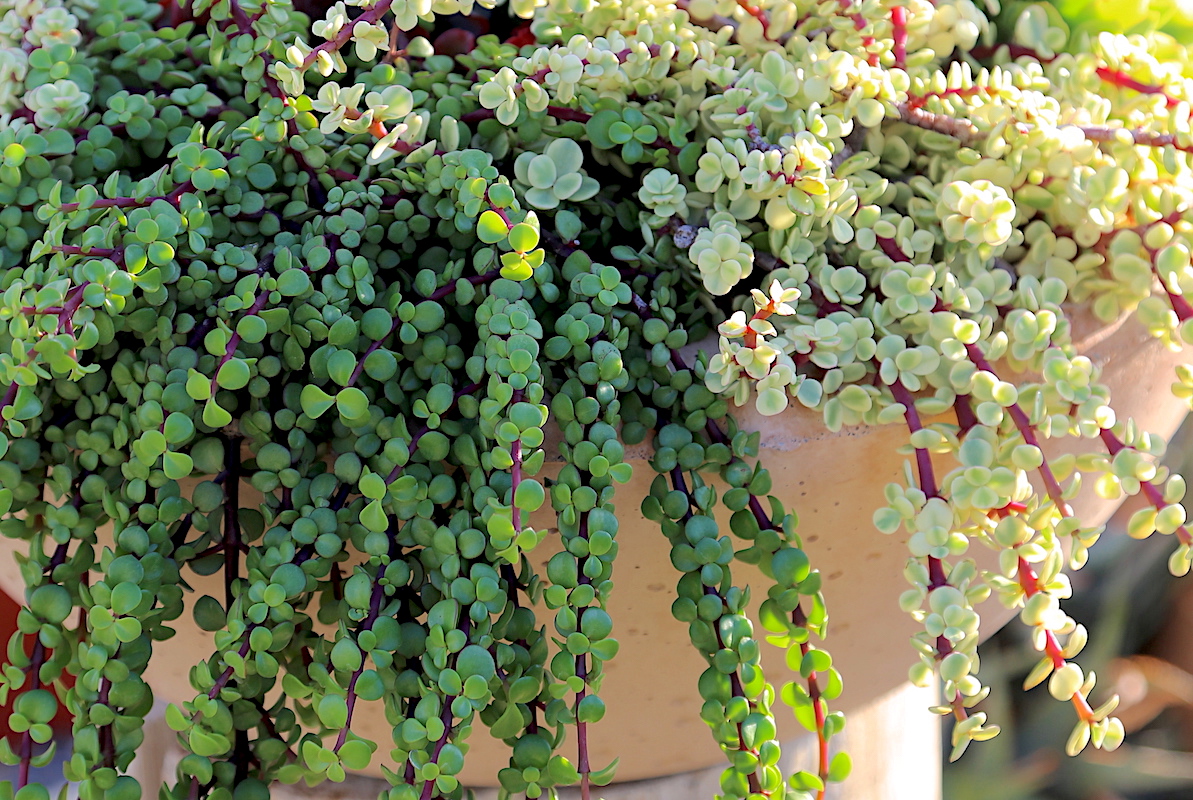
Portulacaria Afra Elephant Bush Photos Varieties Cultivation Uses
Known Hazards None known Botanical References Range Eastern tropical Africa - Kenya.
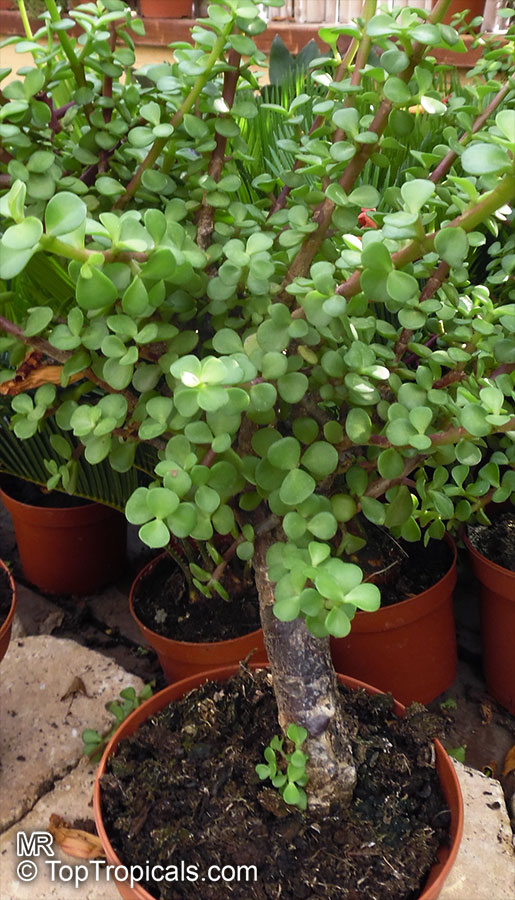
Portulacaria afra variegata edible. It is widely browsed by wild and domestic animals in Africa and while it is touted as a favorite food of elephants ostriches and cattle and can even be consumed by humans it seems to be less palatable to deer and rabbits in our California gardens go figure. The foliage is edible and is commonly eaten in southern Africa usually in salads or soups to add a sour fl avor and was traditionally used medicinally. But quite frequently most homeowners adopt the trailing elephant bush as a houseplant for its splendid decorative aesthetic and aptitude to grow wildly on a south or west-facing window.
Rainbow elephant bush also has long reddish woody stems that grow into a large shrub. In fact in South Africa Portulacaria Afra Variegata succulent is used in preparing delicacies ranging from salads to stews and soups. It is also grown as an ornamental and as a bonsai subject.
The plant is harvested from the wild for its edible leaves which are used locally. Portulacaria afra needs bright. The plant is a succulent with fleshy glossy leaves that grows as a small bush.
First its leaves are edible. This is a plant that adapts well to shallow bonsai containers. Description of Dwarf Jade Plant Portulacaria afra It has small round soft green glossy padded leaves with burgundy red stems.
With the highest concentration of malic acid in the morning the crunchy rounded leaves have a mildly tart taste that is excellent in salads. Portulacaria Afra is a mainstream succulent for bonsai. The Portulacaria Afra or the Elephant Bush is a perennial succulent shrub native to South Africa.
The ASPCAs American Society for the Prevention of Cruelty to Animals website provides valuable information and a comprehensive list of toxic and nontoxic plants for cats dogs and other house pets. A few rules on how to care for elephant bush will help you grow. This variety of Portulacaria is slow growing.
Natives from South Africa also use it to make stew and salads. Elephant Bush is a huge bushing succulent with woody stems. The foliage is edible and is commonly eaten in southern Africa usually in salads or soups to add a sour flavor and was traditionally used medicinally for a variety of minor ailments.
It is also a low maintenance houseplant. It is sometimes called the elephant plant miniature jade or small leaf jade. 475 221 Views.
Clusters of small lavender-pink blooms may appear at branch tips. This variety of elephant bush has brighter-colored leaves than the darker jade-colored Portulacaria variety. Portulacaria Afra Elephant Bush foliage are edible and non-toxic to pets and humans.
Elephants eat it but you need not fear for your Portulacaria unless you have a pet pachyderm. Portulacaria afra Variegata tricolor or rainbow elephant bush first appeared as a sport variant growth of Portulacaria afraIt has cream-and-green leaves and pendant trailing stems. The names come from the fact that the leaves are edible though with a sour flavor.
Elephants eat it - why not people. Portulacaria afra Variegata Rainbow Elephant Bush is a small-leaved succulent with creamy-white and green leaves. And forms low shrubby mounds that spread several feet tall and wide.
It looks similar to the unrelated Jade Plant but it has rounder and smaller pads than the Crassula ovate variety. While similar in looks and early growth habit to Jade plant Elephant bush is distinct in a number of important ways. A cultivar with solid-colored leaves is also available and known simply.
If you suspect poisoning contact your local veterinarian immediately or the ASPCA Animal Poison Control Center at. The ASPCAs American Society for the Prevention of Cruelty to Animals website provides valuable information and a comprehensive list of toxic and nontoxic plants for cats dogs and other house pets. A very large bushy succulent it can grow to unbelievable heights such as 36m tall under the right growing conditions but is typically grown much smaller by enthusiasts.
However it is also edible for humans and is locally used in cooking to add a sour flavour. They are only hardy in USDA plant hardiness zones 10 and 11. One more thing about this plant is that it is edible.
Elephant bush houseplants Portulacaria afra thrive in bright light in a warm draft free room. It is widely browsed by domestic and wild animals because of its ability to remain succulent despite periods of searing heat and drought and is a favorite food of tortoises. Apart from elephants goats and tortoises also find this succulent edible.
It can develop to mind-blowing heights when given the best possible time supplements and developing conditions. It contains Vitamin C which helps to fortify the immune system prevent cardiovascular diseases and some of. Portulacaria afra grows 6 to 8 feet tall and spreads indefinitelyUse it as a backdrop plant andor prune into a hedge.
Portulacaria Afra Elephant Bush foliage are edible and non-toxic to pets and humans. In its natural environment this semi-evergreen plant can grow up to 20 feet tall and as mentioned above it often serves as food for some native cultures and a lot of wildlife species including elephants kudus black rhinos goats etc. Southern Africa - S.
19 Votes Elephant Bush Portulacaria afra. It can likewise be utilized in.

Portulacaria Afra Elephant Bush Photos Varieties Cultivation Uses
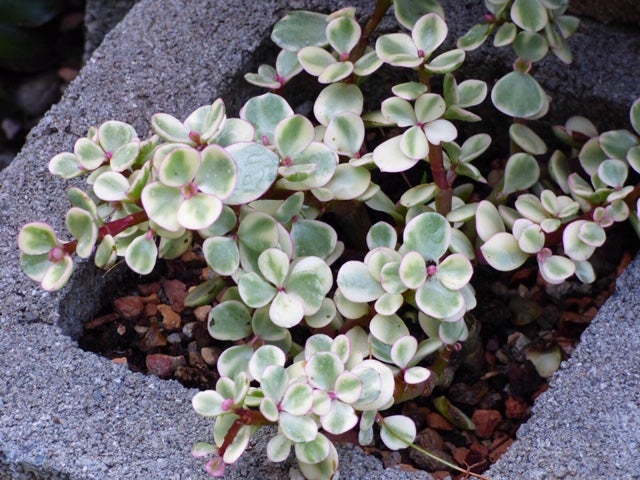
Growing A Rainbow Elephant Bush Learn About Rainbow Bush Care

Succulent Y Portulacaria Afra Variegata My Own

Portulacaria Afra Elephant Bush Growth Care Propagation Faqs
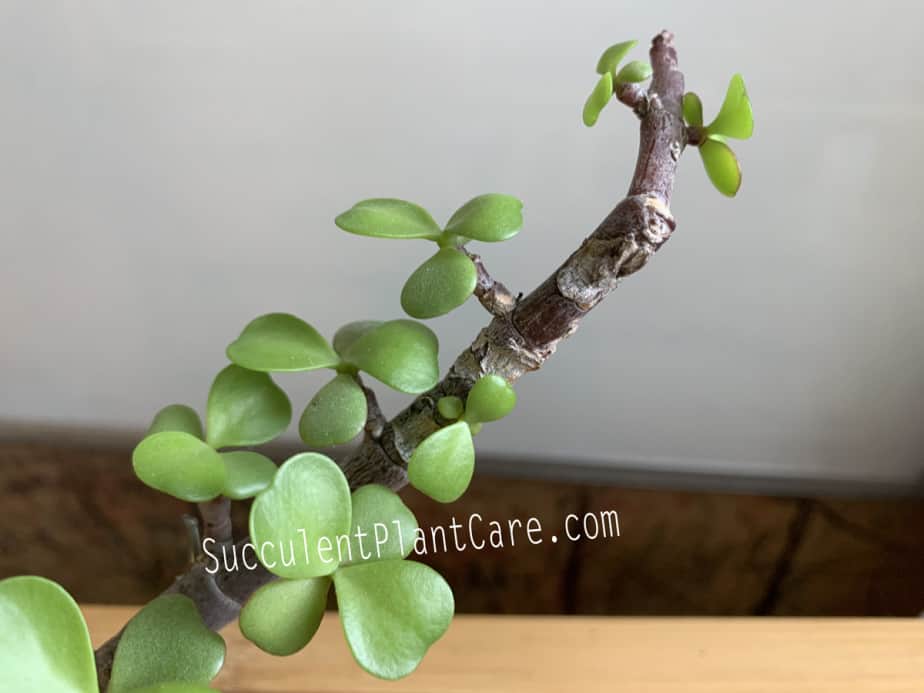
Portulacaria Afra Elephant Bush Care Types And Propagation Succulent Plant Care

Portulacaria Afra Plants Guide How To Grow Care For Elephant Bush
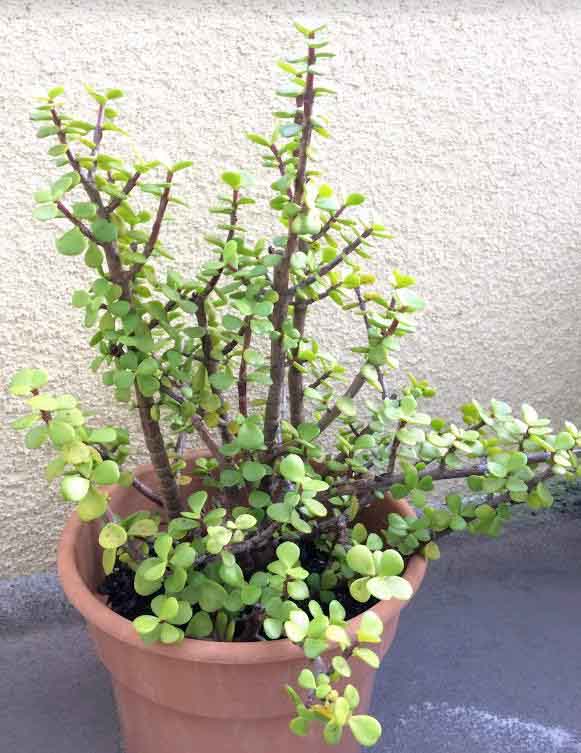
Portulacaria Afra Elephant Bush Care Types And Propagation Succulent Plant Care
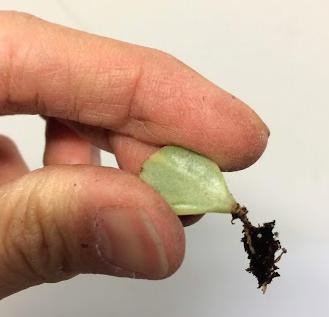
Portulacaria Afra Elephant Bush Care Types And Propagation Succulent Plant Care

Portulacaria Afra Variegata Rainbow Elephant Bush Propagating Pruning Moody Blooms Youtube

Portulacaria Afra Plants Guide How To Grow Care For Elephant Bush

Portulacaria Afra Spekboom Care Benefits Propagation And Tips Plantaku
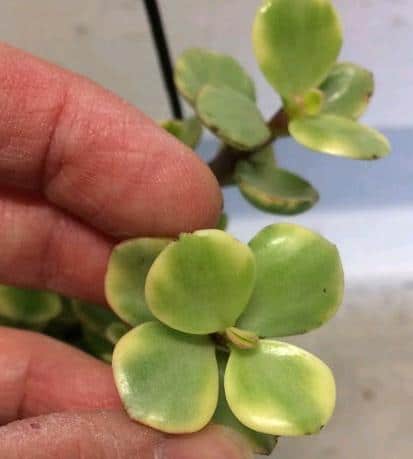
Portulacaria Afra Elephant Bush Care Types And Propagation Succulent Plant Care

Portulacaria Afra Variegata Elephant Bush Youtube

Portulacaria Care Growing Elephant Bush Succulents In The Home

Portulacaria Afra Elephant Bush Photos Varieties Cultivation Uses
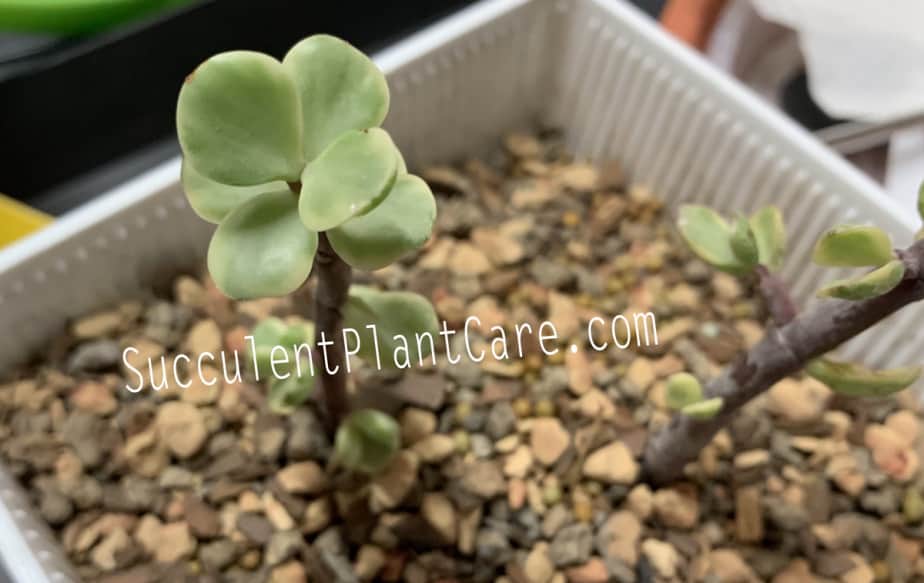
Portulacaria Afra Elephant Bush Care Types And Propagation Succulent Plant Care

Portulacaria Afra Elephant Bush Photos Varieties Cultivation Uses

Portulacaria Afra Variegata Succulent City

Tropical Plant Catalog Toptropicals Com
Post a Comment for "Portulacaria Afra Variegata Edible"